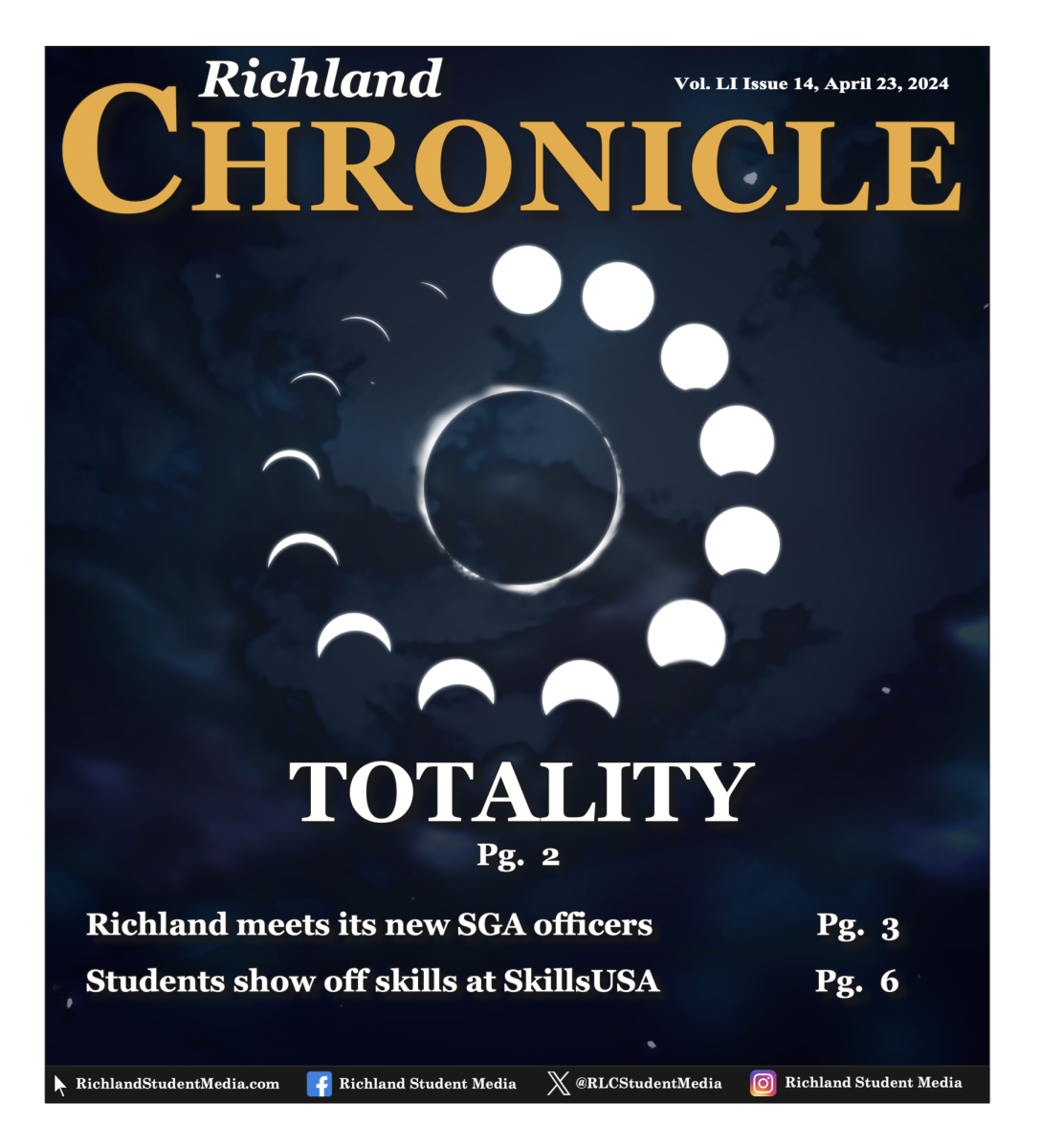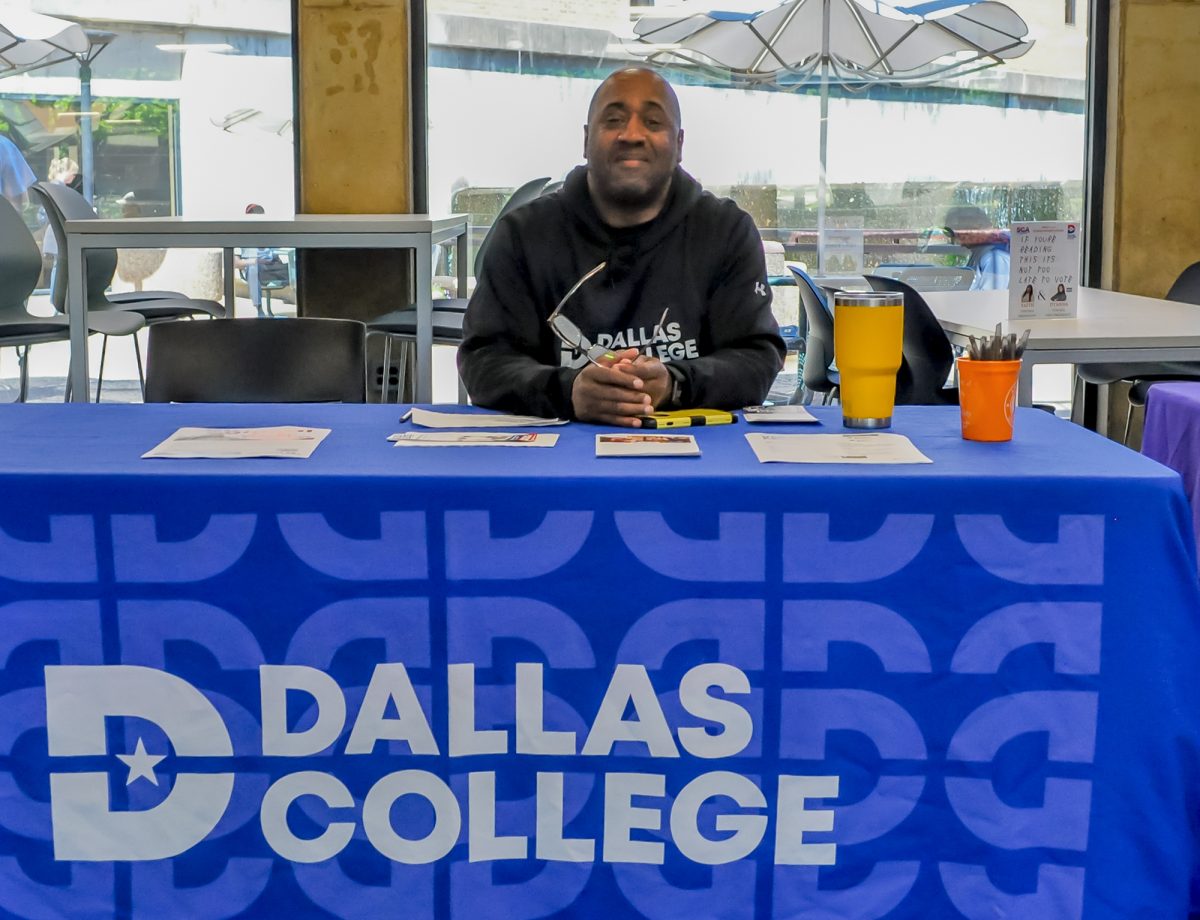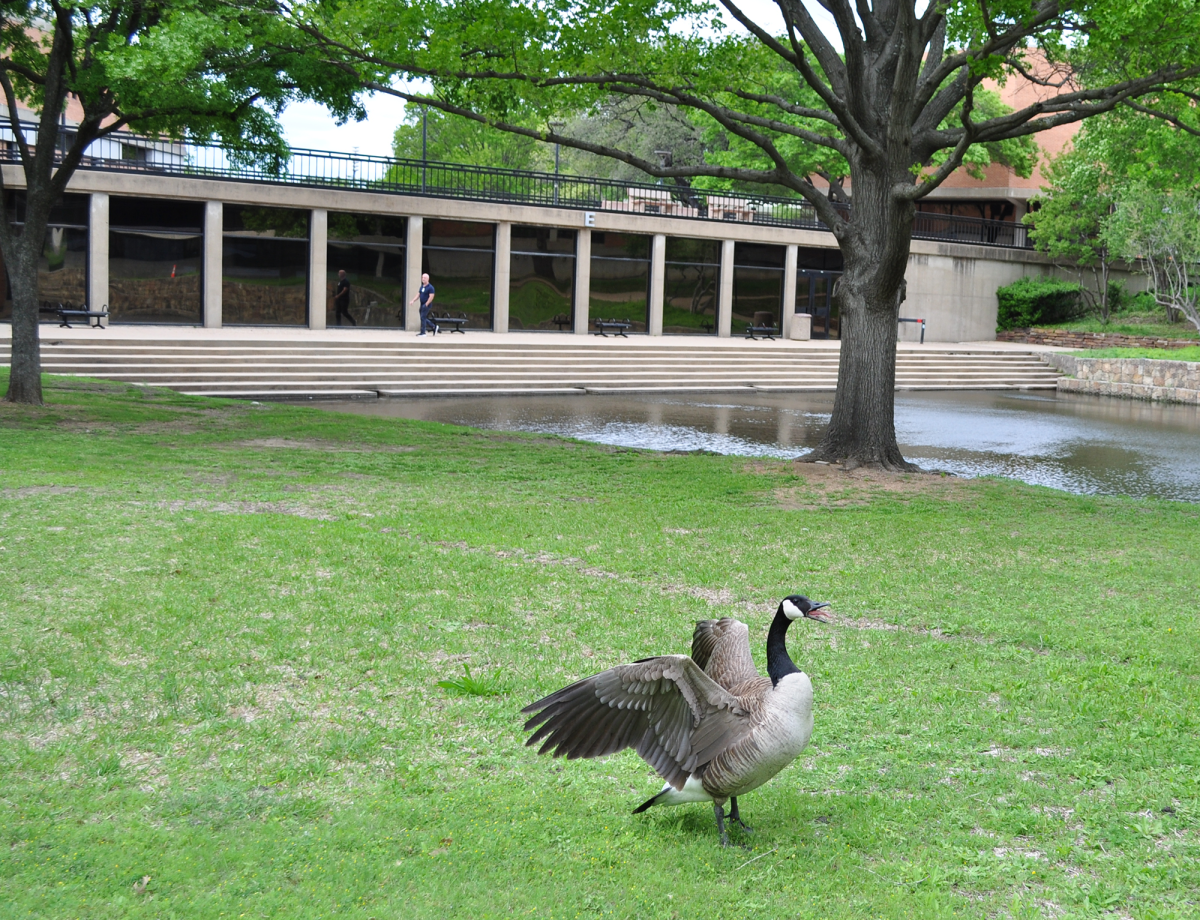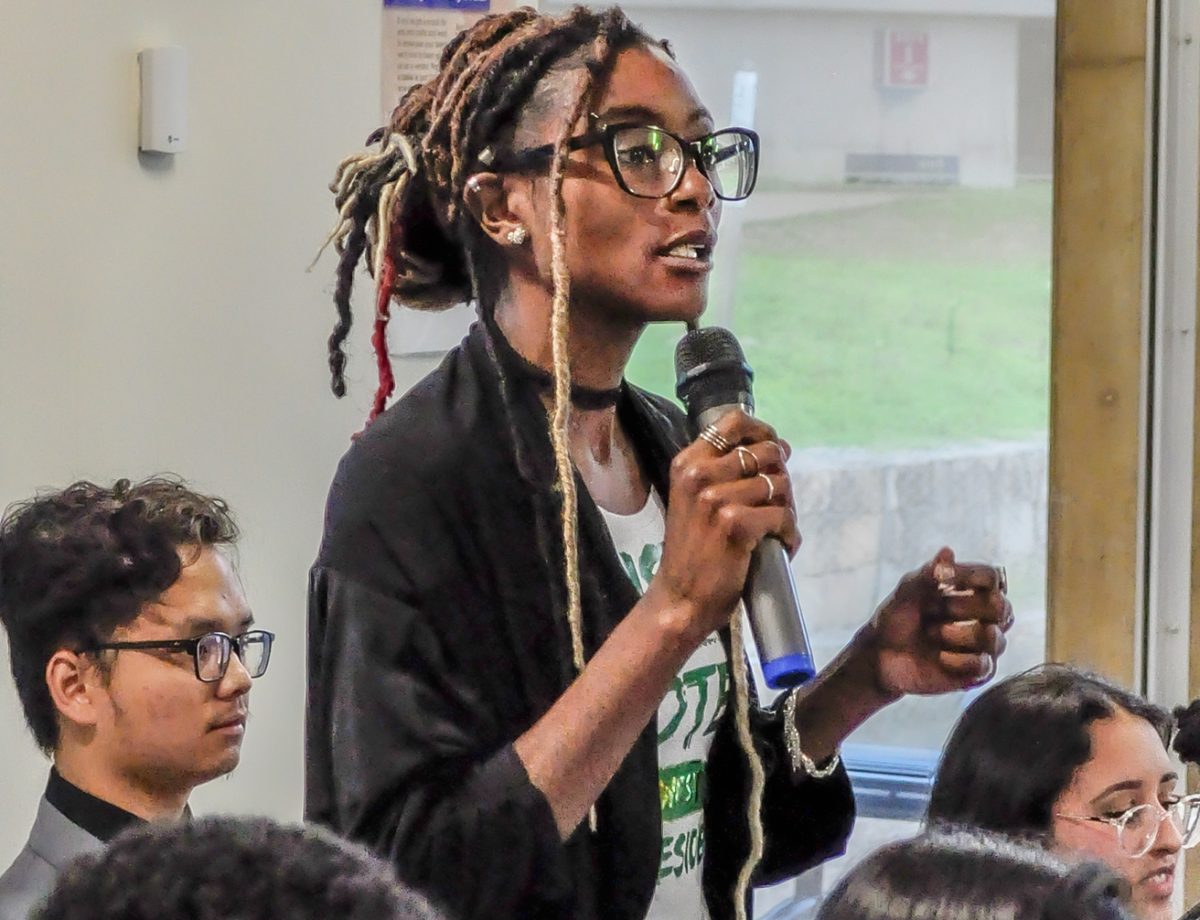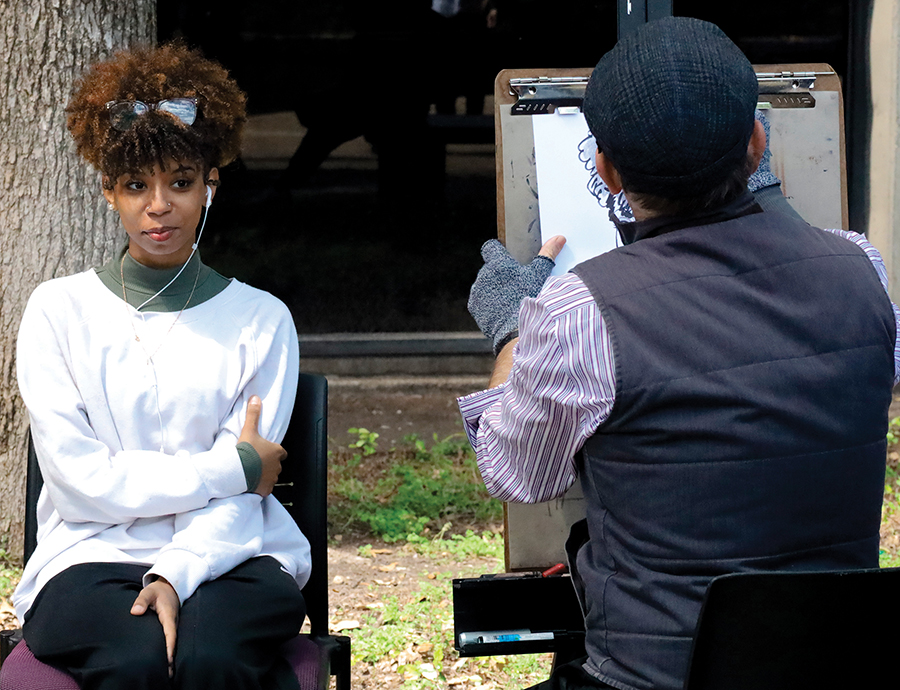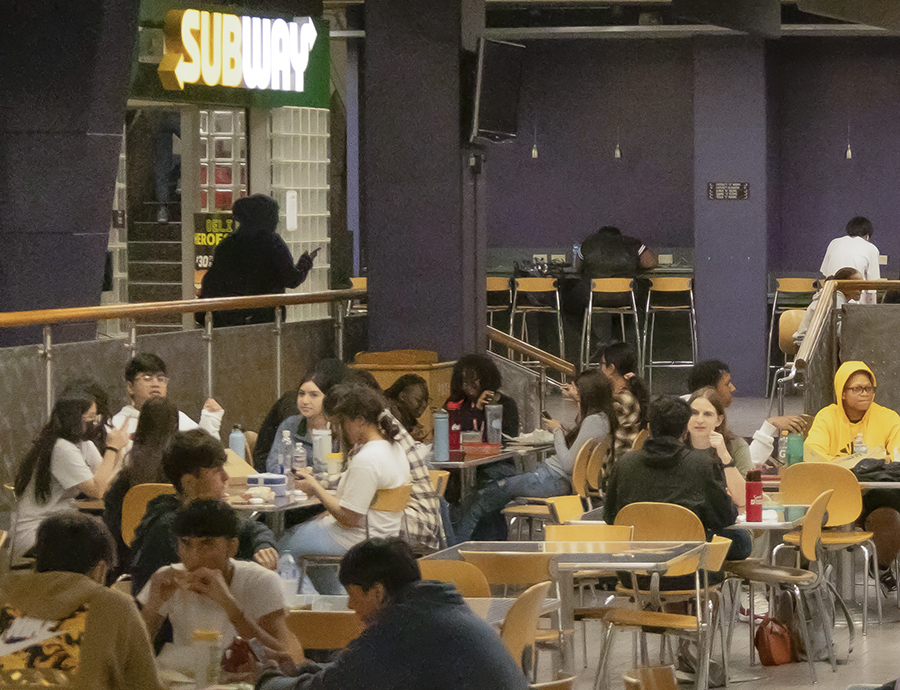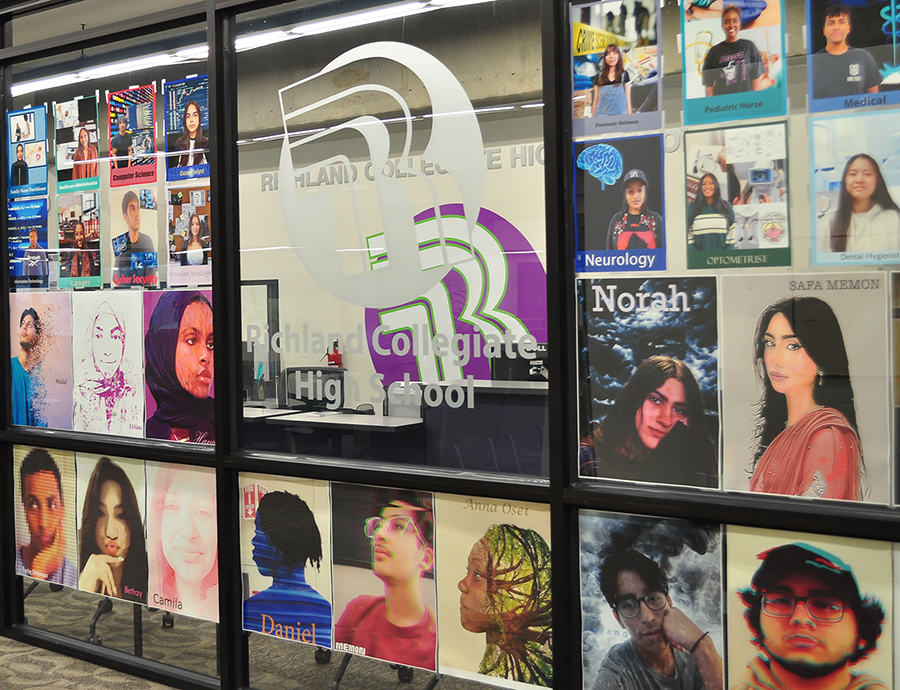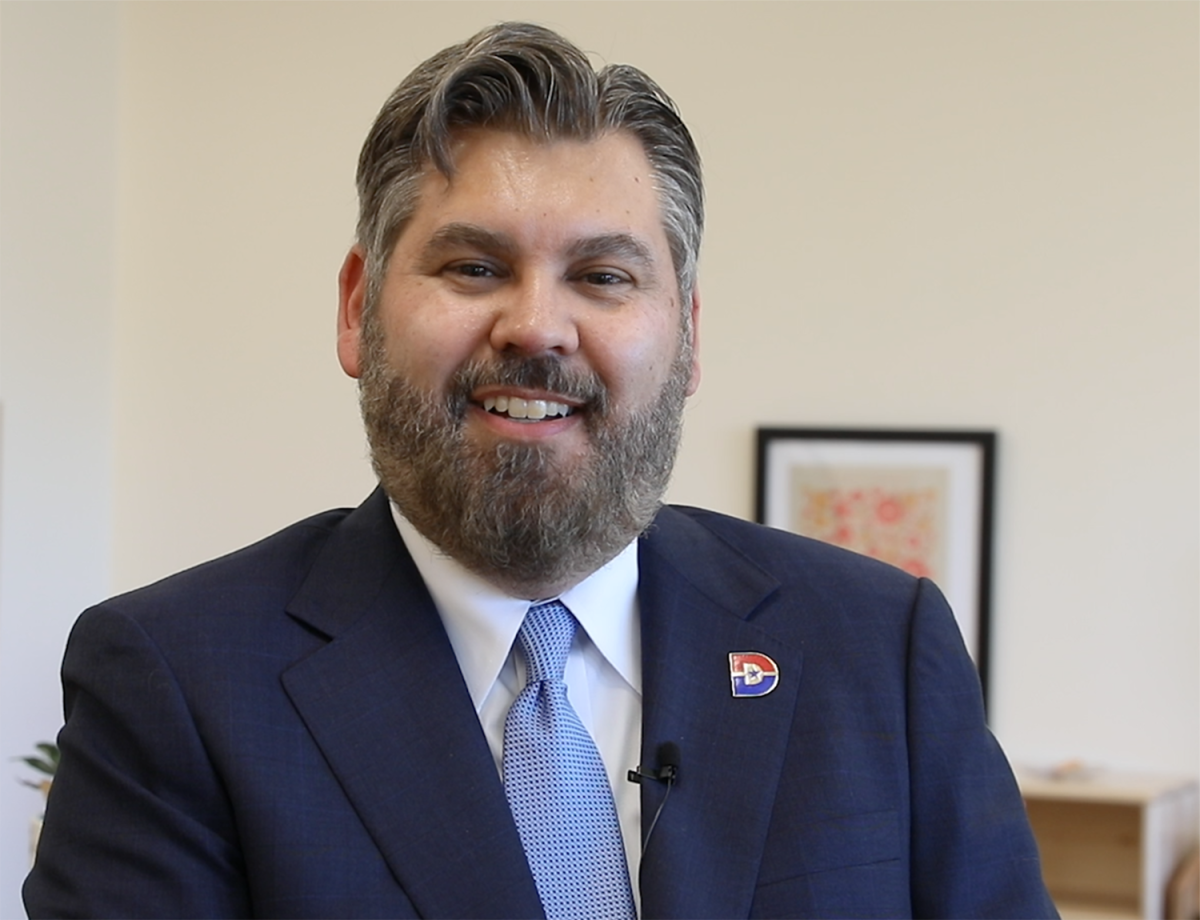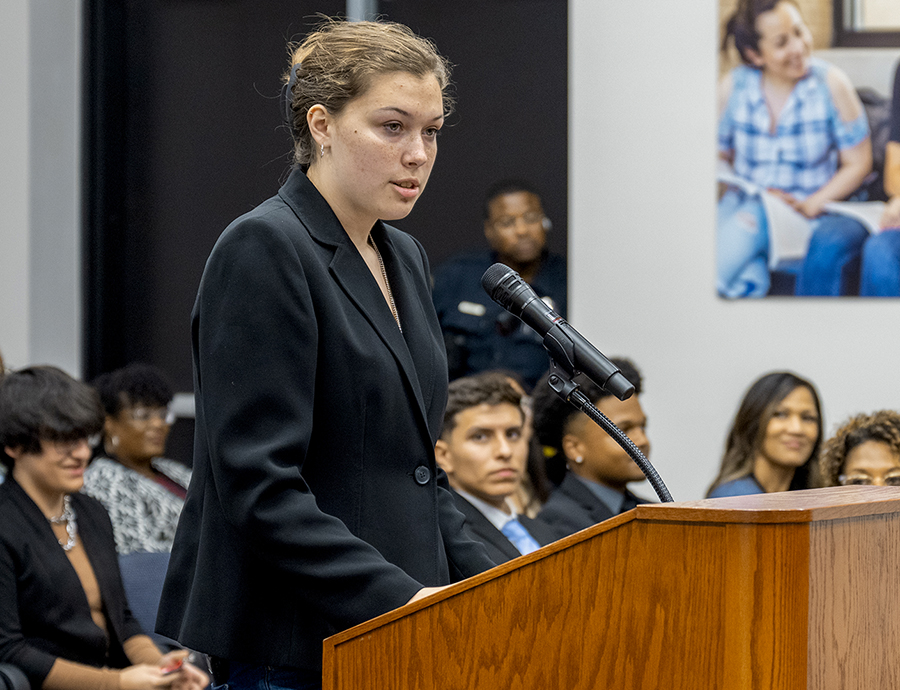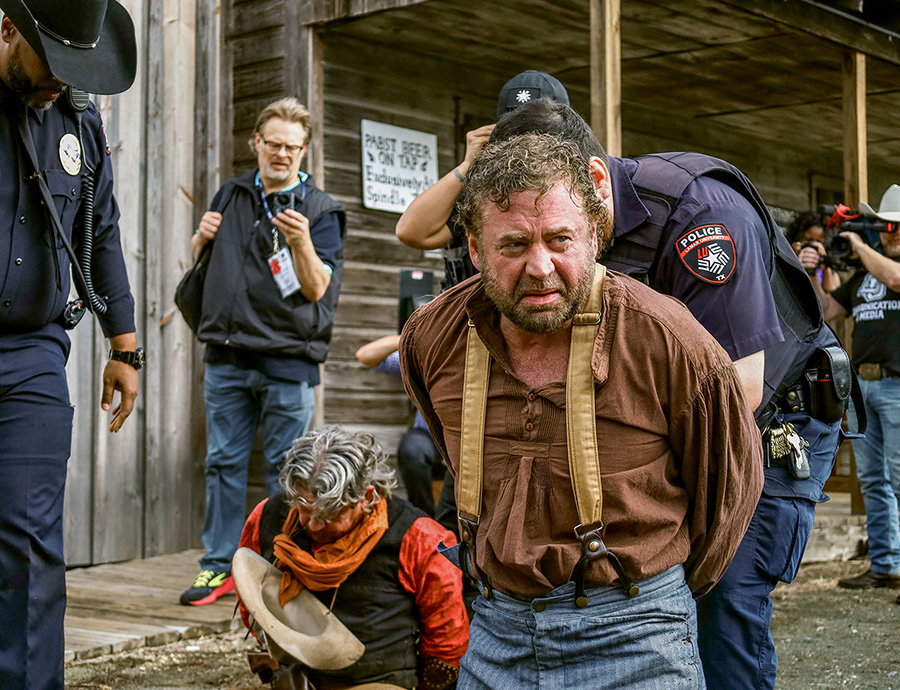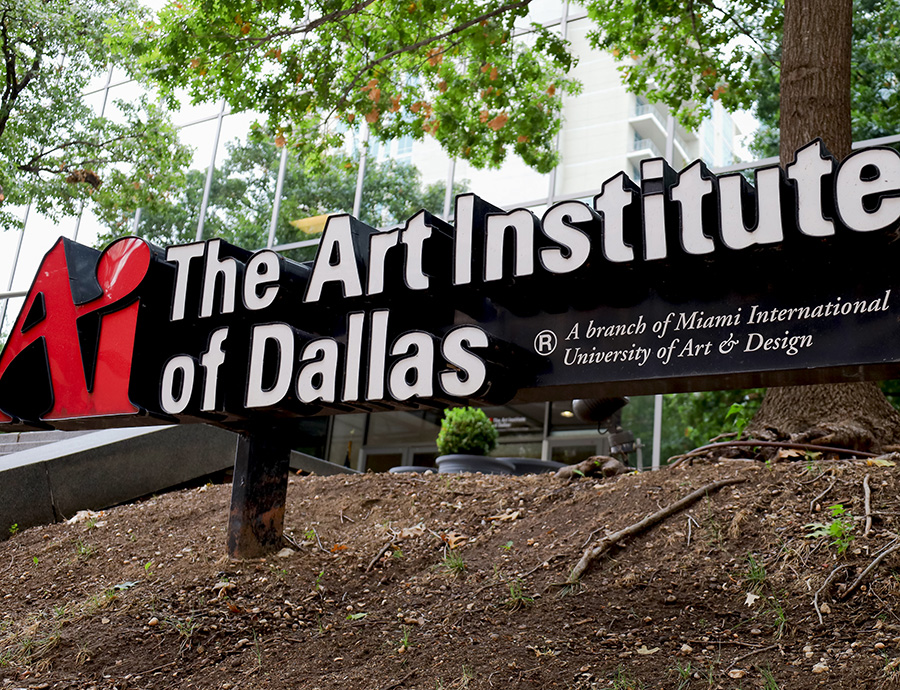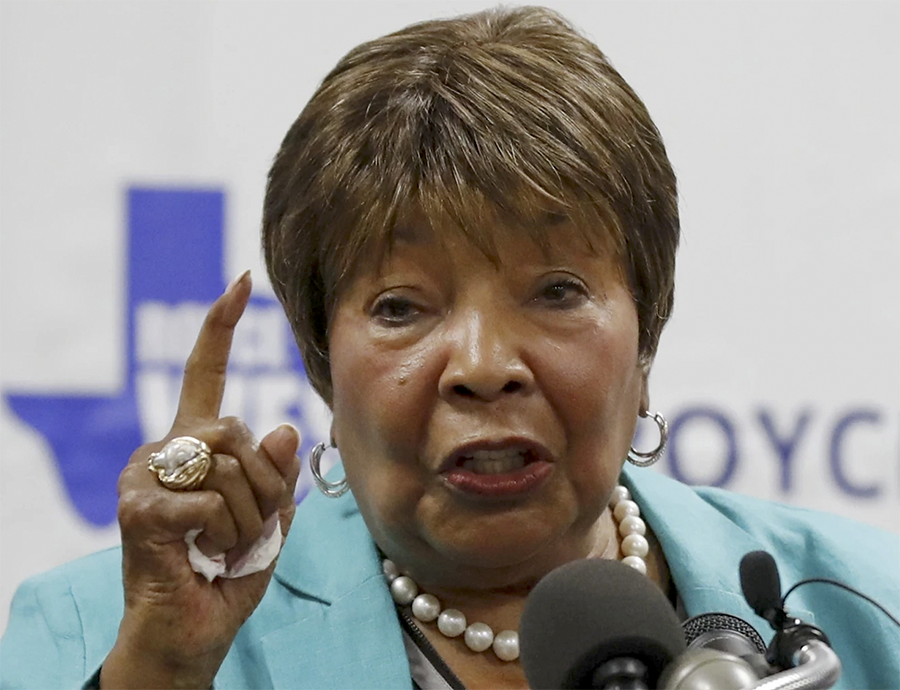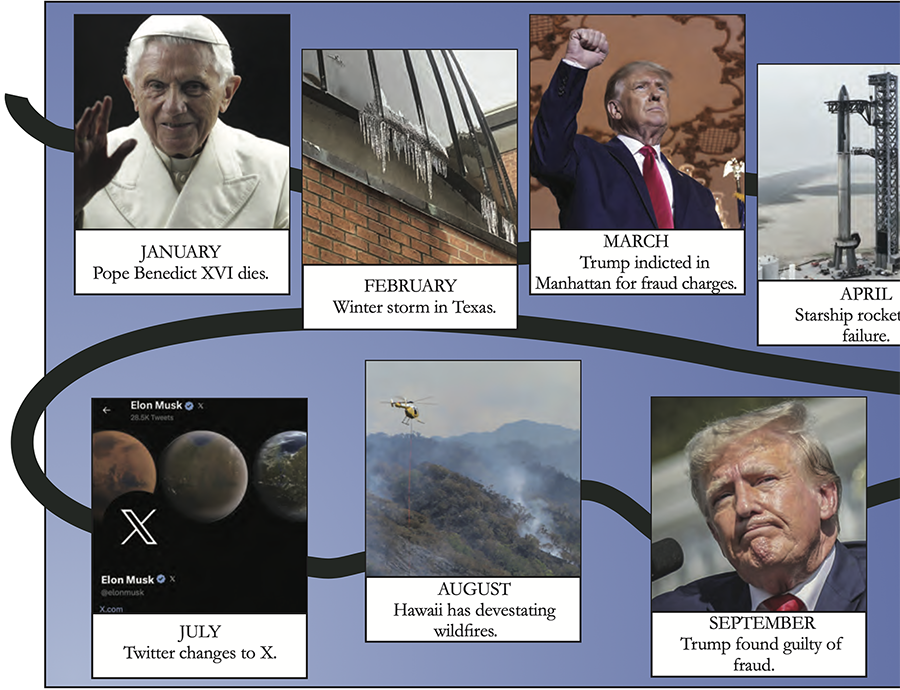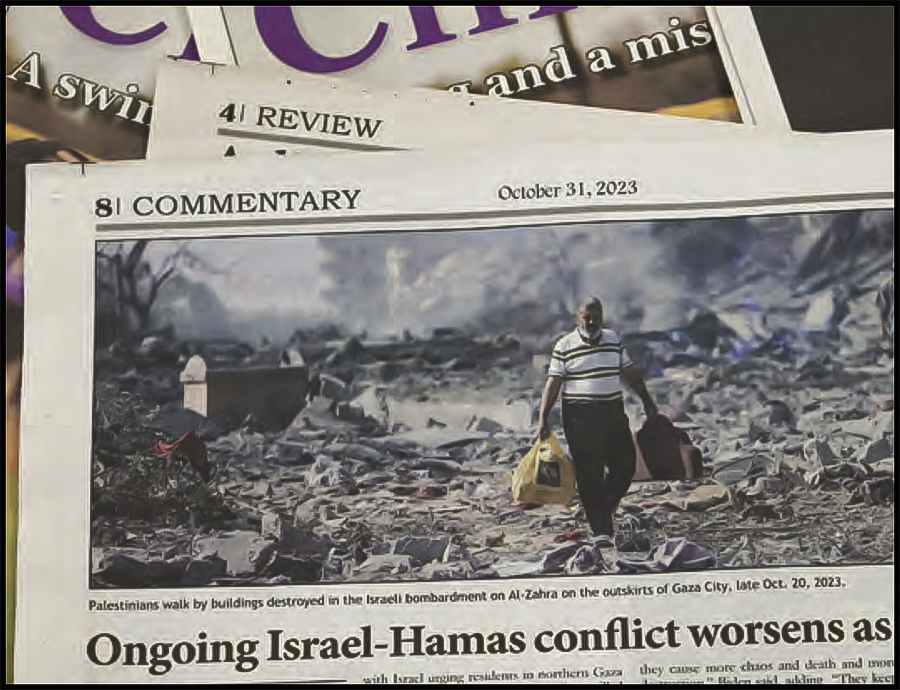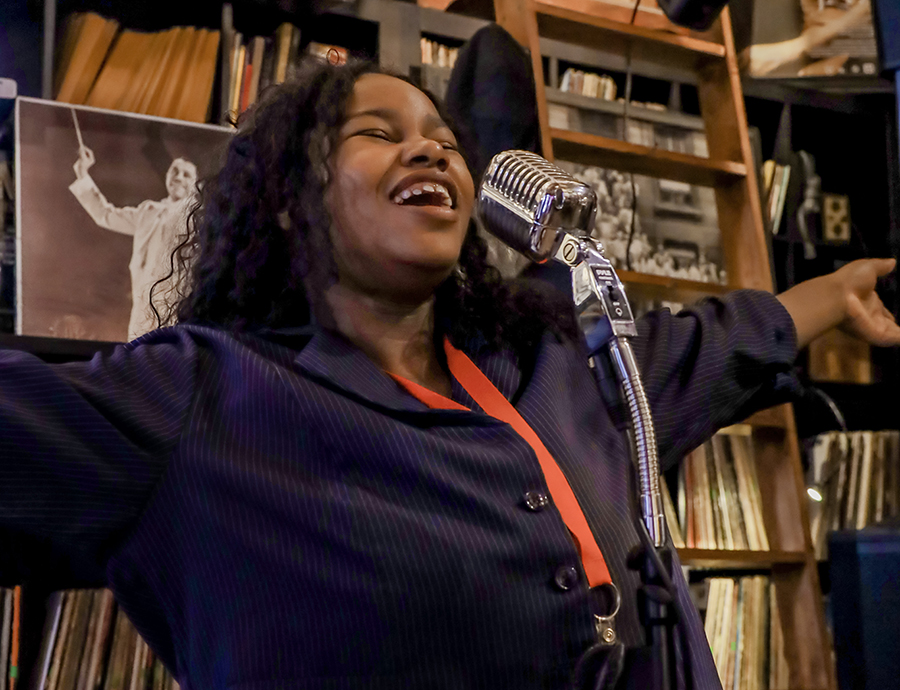By Staff Writer Fiona Forney and Online/Special Projects Writer Ryan Bingham Duff
Dallas College Chancellor Joe May wrote to faculty and employees on Nov. 3, announcing that “After an immense amount of effort, I am pleased to share that our collegewide reorganization process is complete!”
In 2020, Dallas College actively began consolidating and restructuring its organization from seven separately accredited colleges into one. In the spring of 2020, Richland College students and staff left campus halfway through the semester due to the rapidly changing spread of COVID-19. The world grappled with the evolving circumstances of the pandemic while the district planned its reorganization. Despite these additional logistical challenges, the district continued the transition forward. “While we have learned a lot through the transition, ultimately we would not change the timing in which it took place or the way that it did,” said Alex Lyda, senior director of communications for Dallas College. “Failing to change would have adversely impacted our students and our graduates.”
In the case of the Dallas County Community College District, the announcement of the merger came on the tail of administrative discovery of a structural flaw in the district that posed issues for students seeking degrees. “The catalyst for this change was the discovery that our previous decentralized system was beginning to delay students in completing their degrees,” said Lyda, “The dilemma was not tolerable, even in the short-run.” Students who took classes in different colleges within the district, at times, would be unable to graduate since they had not taken enough credit classes at any one college.
In an effort to eliminate this problem and in the hopes of expanding the services available at the various colleges, the district forged ahead with its merger amid the complications of a global pandemic. The seven colleges joined into a newly accredited Dallas College, thus streamlining the services and credentialing available to the community.
As the consolidation was being done to complete the merger, many employees were let go throughout the campuses. Dr. Justin Lonon, executive vice chancellor, said these layoffs were due to the previous structure of DCCCD and the consolidation efforts of the structure of staff.
“There were some areas in the previous structure where there was duplication of efforts and so clearly in the consolidation, there was a reduction in some of those numbers,” said Lonon.
Questions remain, however, about how current employees will deal with the loss of institutional identity, potentially increased workloads and the sense of uncertainty about their future.
Former employee Evelyn Johnson began working at Richland College in 1984 as an administrative assistant. When Johnson was laid off in March, she was working to improve the accessibility of online courses through transcript creation and closed captioning services. Johnson has since submitted her paperwork for retirement.
Johnson said she believes that the need for accessibility will only increase and that the work that she was doing will continue. She said that by eliminating legacy staff members, the opportunities for chaos increase.
“The people who will ultimately suffer are the students,” said Johnson. “The ones that know what to do, they’re not here. … They’re all just bungling around [to] try to figure things out. That is at the cost of students.”
Johnson characterized the staffing changes at Richland as a mass exit.
“I feel that they are ridding the Dallas College of older people and just bringing in the younger generation,” Johnson said.
According to Lyda, “The total number of employees affected is approximately 570. No full or part-time faculty members were impacted, or ‘cut’ in the process.” Likewise, Lyda said there was an increase of roles in the areas of advising and student services. “Of those, we have filled almost 1,000 of those revamped roles through our internal talent pool process.”
May met with reporters and advisers from the student media sites across Dallas College on Nov. 10. When asked about how eliminating duplicated positions might affect students, May said, “Hopefully the goal is just the opposite, and we shared this with the board yesterday. While we have streamlined in some areas, it’s actually been to shift resources for more students facing positions,” he said, “We were looking at how do we shift dollars where possible to better support students and meet the needs.”
May explained that personnel changes have increased the student-to-adviser ratio from 1,200:1 to 350:1. May acknowledged that he has no doubt in some cases mistakes were made and that there may have been overestimation of certain needs, then mentioned that the process to work out all the bugs out may take years.
Jeanetta Burnham has been a librarian for almost 18 years and has been in the Richland library since 2006. Burnham recalled the announcement of the “Learning Commons Model” to be implemented at libraries throughout Dallas College campuses.
This model is part of the district-wide reorganization and would serve to combine testing, tutoring and library services under the umbrella of the Learning Commons.
Burnham said that as part of the reorganization, current employees were required to reapply for their jobs.
“Back in May, I considered that I had hope and a desire to possibly remain. As time moved on, I did come to a decision that I did not want to remain with the structure as it was because I did not feel motivated to help them rebuild something that was torn down that I did not feel was broken,” said Burnham.
“It’s not the Richland Library anymore, it’s the Richland Learning Commons, and the library is just a part of that. We, for many years, operated and tried to position the library to be the heart of the campus, and that was really our goal in everything that we did in our outreach,” Burnham said.
Burnham believes that the Learning Commons model does not especially support the library as an integral part of the Learning Commons, or ultimately as a fixture of the educational institution. This position would place the libraries within Dallas College at odds with their long-established role in intellectual society, said Burnham
Chancellor May said that the historical value of libraries could exist side by side with new developments that enhance the learning experience.
“Obviously, historically, libraries have been incredibly valuable and frankly a resource that we wanted to protect,” said May. “It is a scarce, valuable resource, and that’s not changed. But, frankly, technology has also taken care of a lot of things.” May said there’s a vision of the evolving role of the library in the digital world. “If you can access the materials digitally and remotely, then let’s provide more hands-on in person support, but that’s different than the traditional library staff in some cases.”
Lonon added that he has engaged in conversation with Provost Shawnda Floyd regarding the shifts and changes within Learning Commons and tutoring services. Lonon said the college has a commitment to tutoring but said that the specifics of services are still being re-evaluated.
May said that the administration aims to make tutoring services more generally accessible, and that the issue of tutor support is recurring. May said Richland had made more significant investment into tutoring service infrastructure, however, access to tutoring services was uneven district-wide. “We see supporting students as a universal priority, and so we are really looking at how we do this.”
Whether these services will be resurrected in the Learning Commons is unclear.
Dr. John Ewing teaches Intro to World Religion at the Richland Campus. Ewing described his experience of the conversion to one college as unsettling, citing the rapidity of the endeavor compounding the uncertainty of the unfolding pandemic. Ewing said the process has left him and others questioning how they fit into the new configuration.
When asked about his sense of job security, Ewing responded, “Ultimately nobody’s irreplaceable,” but reflected that he feels his department has support throughout the college.
“There are a lot of unknowns always going forward as far as the conversion, and I think that eventually things will settle down, but it’s been a real process over the past year and a half. … The one thing that I would tell myself is that Richland College as an institution doesn’t exist anymore.
“We’re Dallas College now, and you have to see yourselves as part of a new entity, in a sense, with a legacy, but definitely we’re a different institution.”
Executive vice chancellor Lonon said he has been communicating lately with employees to hear about their thoughts and issues that may arise.
“I’ve been participating in some small group sessions at each of the campuses with cross-functional groups of employees just to have a dialogue on what issues do they see, what perceptions do they have about the transition or the changing nature of work coming out of the pandemic,” said Lonon.
Cooper Matlock, a former adjunct English professor at the Richland Campus, said he fears the changes around the college have damaged the campus “community.”
“I would like to think that there might be a hue and cry, and there might be people of like mind who recognize the services and the community that existed and want it back and would be willing to fight for it.”
Matlock spent four years volunteering at the English Corner, a space where students could get assistance for English assignments, which recently closed.
“I think that we all recognize that there are growing pains,” said Lonon, who was named chancellor-elect earlier this year. “And our challenge, and certainly what I will be focusing on a lot, is to ensure that those growing pains don’t get institutionalized to become the norm.”
Lonon said that culture will be one of his focuses throughout the transition. Lonon aims to define what it means to be a part of Dallas College while recognizing the legacy on which it has been built.
Lonon described the challenges of integrating the cultures of the different campuses, recognizing the “local flavor and spirit” existing at each campus, but asking, “How do we honor that, while also recognizing that there is a new institution that has grown out of this? I think we all recognize there is angst, if we’re focusing on employees. There is concern, and there are morale challenges. All I can say is we’ll be intentional on focusing on those things over a period of time.”
“The other two groups, administrative and staff, when you consolidate and when you merge seven businesses and entities into one, you’re going to have a lot of job duplications. You know, marketing, publications, public relations, a [public] assistance. A lot of those jobs were eliminated, and my understanding and my belief is that the savings in those areas [that are being eliminated], will be [moved] into student services and academics,” said Martinez.
Martinez said he is “extremely disappointed with faculty that have been here many years, who are on their way out, that have screwed it up for the rest of us that are staying behind.”
El Centro campus Professor Richard Menchaca went to the Dallas Observer and polled a “No confidence” vote against May.
When asked about the “No Confidence” vote in October, Lonon referred to a statement given by May.
“I appreciate the hard-working employees who understand how this change allows us to better serve our students’ evolving needs. These are the true champions of our transformation, and I am glad to have their support. Anything other than a relentless focus on our students is a distraction. In my time remaining as chancellor, we will stay the course as charted by our Board of Trustees, who, in their ultimate wisdom, believed and continue to believe in everything Dallas College has to offer the students of today and tomorrow,” said May.
Editor-in-Chief Barbara Gandica Martinez and Managing Editor Alex Ortuno contributed to this story.


